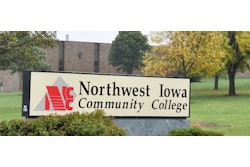Emergency aid for students is crucial during the COVID-19 pandemic, but some of the most vulnerable students are being overlooked.
Congress has allocated $6.28 billion in emergency grants to college students as part of “phase three” of its Coronavirus Aid, Relief and Economic Security (CARES) Act. The purpose is to help students overcome challenges arising from COVID-19. These funds are meant to help students address issues such as food and housing insecurity and assist them in staying on track with their education.
However, some students will not get the help they need because of restrictions in the CARES Act as well as the method of allocation. A recent report by The Century Foundation, “How Colleges Can Address Equity with CARES Act Emergency Student Aid,” examines some of the issues.
 Peter Granville
Peter GranvillePeter Granville, author of the report and senior policy associate at The Century Foundation, noted that the $6.28 billion from the CARES Act would divide out to approximately $281 per student in headcount enrollment. However, the formula that determines what each institution will receive favors institutions with more full-time than part-time students and more Pell grant recipients.
The report indicates that not all high-need students receive Pell grants, which can be due to non-completion of the Free Application for Federal Student Aid, or FAFSA. By their very nature, community colleges enroll many students with great financial and educational needs, but there tend to be more part-time than full-time students. Granville’s general calculation is that community colleges will see around $187 per student versus $337 per student at a public four-year institution.
“This compounds the existing disparity in resources,” said Granville. “This is just another instance of what has always been true, which is community colleges get the short end of the stick.”
Granville began work on the report in early April. He had previously interviewed students about the life-changing impact of emergency aid and saw that, in a crisis, even a relatively nominal amount can positively impact someone’s ability to succeed in school.
“I felt a deep dive into the nuance of this aid would be valuable, especially given how many colleges are now providing emergency aid for the very first time,” said Granville. “Anecdotal evidence we’re seeing really tells the story that students with the least financial resources are struggling the hardest to stay afloat amid campus closures.
“We know financial resources are linked to student persistence, so the report assumes that a lot of low income students’ opportunities to complete college are on the line right now,” he added. “The stakes are very high, both for these students’ futures and also for the strength of our workforce in years to come.”
Prior to the CARES Act, the funds for emergency aid and related programs typically came from the institution or a donor and the amount of money available was relatively small. With the influx of funding from the CARES Act, many institutions will be serving a much larger number of students. Campus closures due to COVID-19 have created greater need as students are now cut off from things such as computer labs, libraries, food pantries and health services.
Dr. Belinda S. Miles, president of Westchester Community College, said the college has received more than 225 emergency aid grant applications due to COVID-19, compared to a typical 25-50 requests per month prior to the crisis.
 Dr. Belinda S. Miles
Dr. Belinda S. Miles“We are gravely concerned about the population of students who have dropped at least one course, 15%, or who have basically disengaged from classes, which our data indicates are in the 5% range or just under 500 students,” said Miles. “Those who have dropped courses but remain enrolled will, at best, delay their graduation.”
Miles warned against an “us versus them” mentality, noting that tens of millions of Americans are facing dire situations. She does; however, remind people that community college students need support, whether their goal is transferring to a four-year institution or gaining greater job skills.
“They are vital links to a re-energized U.S. economy and must not be overlooked,” said Miles.
Granville hopes that policymakers see the report and realize the need for more aid to be directed to community colleges. “This is a great opportunity for state legislatures to channel some funding through the emergency aid systems that colleges have been putting in place this spring,” he said. “Also, higher resourced institutions should consider donating their allotment of CARES Act aid or some portion of it to a nearby community college, where the need is likely to be much greater.”
Miles noted that supporters of the Westchester Community College Foundation have generously provided computers for students who need them to continue their studies and have raised funds for direct financial contributions to the most vulnerable students. The college has also provided pre-bagged meals for students.
Granville wrote in the report it is important that information about the availability of CARES Act Aid be carefully disseminated as personal outreach is often more effective than mass emails. Also, well-trained case managers are needed to oversee applications.
“I strongly advise institutions to leverage this emergency aid process to connect students to other benefits, like food stamps and Pell grants,” said Granville. “College staff who are administering CARES Act Aid should at least know how to direct students to someone who can walk them through applying for these benefits.”
While this crisis has highlighted the digital divide in this country, Miles said there is a positive note. “The crisis has accelerated our progress in achieving our strategic plan goals related to 21st century teaching and learning practices,” said Miles. “Students who formerly only took face-to-face classes will have more flexibility via online or hybrid options.”















